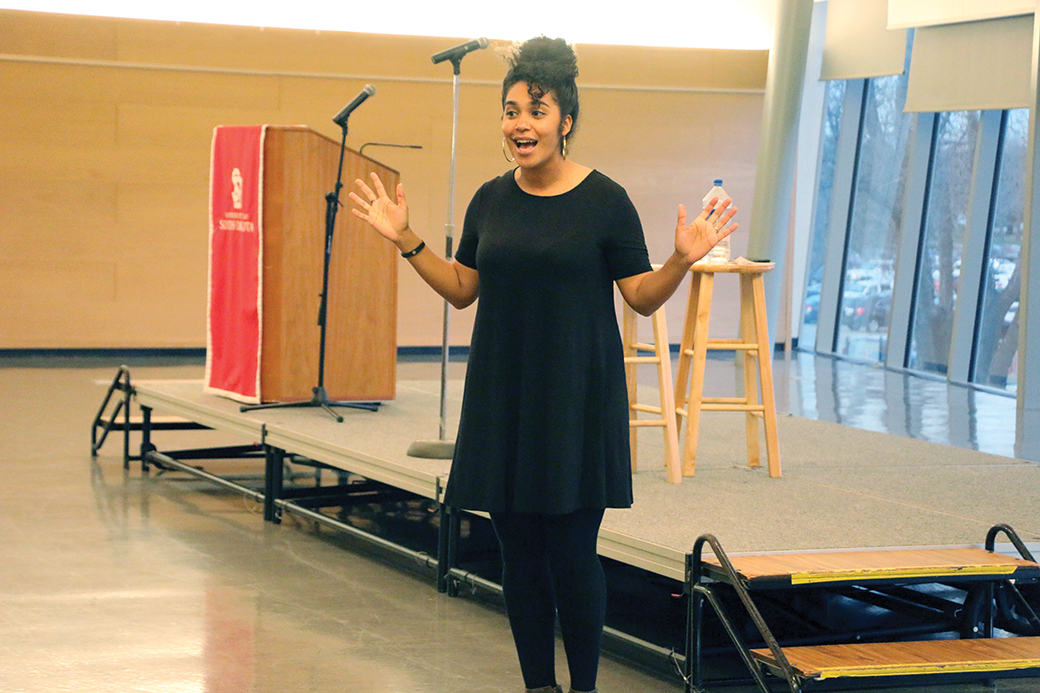
Elizabeth Acevedo shares poetry, life experiences
By Cheyenne Alexis and Morgan Matzen
Race and civility were the main topics during slam poet Elizabeth Acevedo’s visit to USD.
Acevedo shared her poetry with an audience of students and faculty in the Muenster University Center Ballroom Thursday night. She lead a lecture and a writing workshop earlier in the day.
Acevedo said growing up as Afro-Latina and to Dominican parents inspired a lot of her work.
“I think a lot of people can probably identify with the feeling of being both and neither — belonging to many different things,” Acevedo said. “I wanted to tell my story and try to figure out how to do that. I come from a family of storytellers, so I reflect that back.”
One topic Acevedo incorporates into her poetry is sugar cane because of her Dominican roots.
“There’s something fascinating about a really sweet crop that the entire world consumes that was literally labored for by hundreds, thousands of people who were brought over from their countries so that you could have chocolate,” she said. “The sweetest crop has a really bloody history. That reflected a lot in my work.”
First-year art photography major Victoria Smith said Acevedo’s poems were interesting.
“I really liked how it was different,” Smith said. “She talked about her perspective that she grew up with and she tried to make it as relatable as possible so people could understand where she was coming from.”
First-year nursing major Kelsey Reuter said Acevedo’s poetry was “powerful.”
“(It was) very impactful and I think a lot of topics that are hard to talk about in our society right now and there are a lot of things that need to be talked about,” Reuter said. “She was blunt about it, it wasn’t like she was sugar-coating the problems so that was nice.”
Acevedo said USD was very receptive to the events.
“The (workshops) were really good — people are really nice, it’s a really nice area,” she said. “They’re really generous with their time and their energy. I found that the students I worked with were really open to trying new things, so I was really glad for that.”
Acevedo said the inspiration for her poems comes from everywhere.
“A lot of my work has to do with identity, it has to do with my background, it has to do with what it means to walk through the world,” she said. “That manifests in all kinds of ways.”

